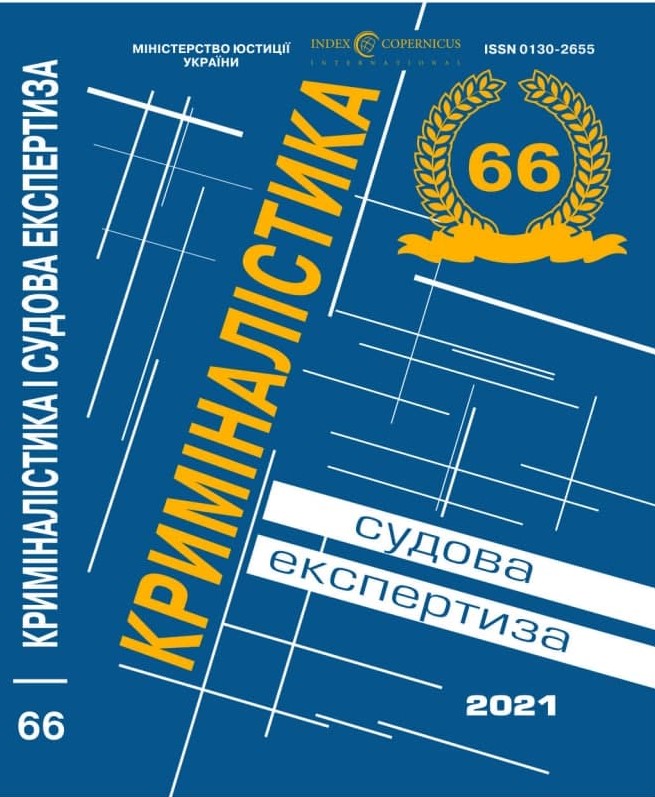
DOI: https://doi.org/10.33994/kndise.2021.66.13
О. Humenskyi
A correct understanding of special knowledge is an important condition for its application in all necessary cases, due to the need for legal proceedings. Special features that characterize special knowledge are the following:
– this knowledge is not generally known, generally available and unit;
– a person in the process of theoretical and practical preparation for a specific activity acquires them;
– are used not once;
– are provided in indirect form, not direct form;
– are involved in the process in accordance with the procedure established by law if the participants in the process have a need for this kind of knowledge;
– are used in the forms provided for by procedural legislation;
– its use is associated with a certain level of education and/or training, as well as professional or other experience;
– such knowledge helps to ensure the adoption of a lawful and justified act of the pre-trial investigation bodies and the court as a judicial authority.
The basis of special knowledge must necessarily be theoretical, scientific validity. Special knowledge in criminal proceedings is knowledge and skills obtained as a result of special education and/or practical activity in any field of science, technology, art or craft, which are used by the participants in the process determined by the law within the powers granted to each of them to solve procedural tasks according to a certain procedure.
Special knowledge is personalized knowledge acquired and assimilated by a specific person in the process of cognitive activity. In addition, the understanding of cognition as an activity to achieve knowledge corresponds to the concept of judicial cognition as a process for the formation of knowledge about the circumstances that are significant for the correct consideration and resolution of the case.
The basis for the use of special knowledge is the need for it in order to obtain evidence-based information: 1) by establishing in the process of research facts that cannot be obtained in another way (examination); 2) by using special knowledge to provide advice, clarifications, assistance in formulating questions to an expert or the commission of other procedural actions.
Depending on the subject, type of activity and the purpose of its application, procedural and non-procedural forms of using special knowledge are distinguished.
Depending on the legal purpose, the distribution of forms of using special knowledge is carried out as follows: if new evidence is formed using special knowledge, this is a procedural form; if special knowledge is used for the internal conviction of the subject of proof, this is a non-procedural form.
Keywords: knowledge, cognition, special knowledge, special skills, forms of using special knowledge










